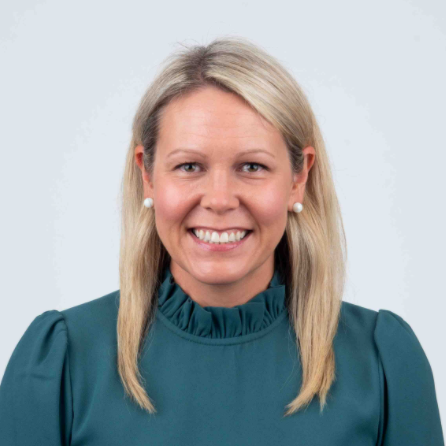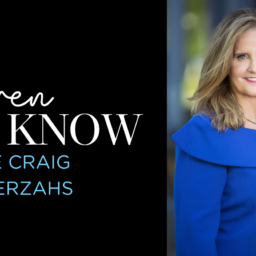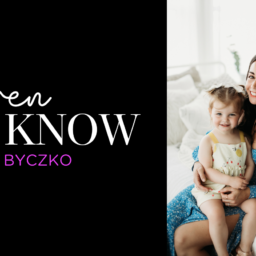

Read on for more insights into marriage, divorce, and the most important thing you can do for your legal health right now.
In between the global pandemic, the election, and the social unrest of 2020, life still managed—in some ways—to go on. We saw birthday parades and virtual weddings, but with the highs of life also come the lows, and divorce was no exception. But what does a divorce look like in the year 2020?
We sat down with family law attorney, Jennifer Hughes, of CCHA to chat about that, as well as other legal matters that should be on our minds right now.
Originally from Ohio, Hughes went to IU Bloomington for her undergrad and DePaul University for law school. She’s been living and practicing law in the Indianapolis area since 2005.
“I’ve really always known I wanted to do divorce law. I like being a problem solver and so much of divorce is solving problems—financial pictures, schedules for kids, goals—I like being a resource in time that’s so foreign and chaotic and stressful,” she said.
How do divorces look now versus pre-COVID?
We saw a lull in March, April, and May when people were trapped in their houses, maybe thinking about or contemplating divorce but didn’t want to rock the boat—who wants to be in divorce with someone they’re stuck in the house with?
There was an increase in May and that’s continued. I’ve noticed a lot of clients have been more reasonable. I think it [COVID] made people reassess their lives or lack of wanting to fight with somebody. They’ve had more time to think and are able to come in more level headed or more thoughtful.
What about prenups?
We’ve seen an upswing. A lot of people have contacted us at the last minute saying life’s too short so they’ve decided to get married and want a premarital agreement. People have assessed their own happiness personally and professionally and also their relationship to their kids.
Speaking of kids, what changes have you seen with custody arrangements?
For parents living in the same community, it’s been difficult due to lack of clarity—what are the rules here? Who’s in your bubble? What if the new spouse has kids from a previous marriage? What practices are being followed at parent A’s house versus parent B’s?
We received really good guidance from the judges in Hamilton and Marion County, and have routine Zoom meetings to flush out these topics. We were pleased to see a unified message saying look, we can appreciate lack of knowledge but the standard is still what’s in the best interest of the child and that’s to see both parents. That should continue unless there’s a reason to deviate, like someone who is COVID-positive, or a parent who is an ER doctor.
Kids are always better off if they can have both parents present in their lives.
What’s the number one thing someone can do right now to protect themselves during this time from a legal perspective?
My first recommendation is to gather information. Take stock of your assets and liabilities. What does life insurance look like? Do you even have it? What is your mortgage and who holds it? The majority of men and women don’t know these answers. Do you have a will and estate planning documents, power of attorney, healthcare documents and where are they? Who else needs to know where that information is? Even in a time where people aren’t having face to face meetings, it’s very easy to draft these documents and communicate with lawyers.
A lot of people are having to navigate roles as caretakers in a unique way right now. What’s your advice for them?
Have your parents and family members fill out advanced directives. If you have a loved one in the hospital and can’t put eyes on them to assess the situation and you’re trusting medical professionals to report back to you, it’s nice to have that.
Back to prenups for a minute. What’s your go-to response or guidance for someone who does not want to do a prenup because it isn’t “romantic” or “they’re never going to need it”?
I always encourage people to look at prenups the same way they’d look at life insurance or a will. They aren’t sexy to think about, but they are necessary. You stick it in a drawer and then don’t think about it—but you sure are glad it’s there if you do need it.
In a state like Indiana, a prenup is a good idea because it allows you to make the agreement in advance. In the case of separation, you’re emotional and not at your best. This way you can make the hard decisions and focus on your own welfare and of kids without thinking of the minutiae of who gets what.
Any other advice for couples just starting out?
One hallmark is full financial disclosure. We all know young people who get married, think the person is financially sound, and then find they have $100k of debt. With a prenup you have to disclose all of this up front.
What’s your best advice regarding divorce?
Extend yourself a lot of grace. Understand and appreciate that this pandemic is creating new challenges and stressors for everyone. As difficult as it is, try to extend grace to your soon-to-be ex-spouse and the benefit of the doubt if you’re able to. We’re all experiencing this in real time for the first time ever in our generation and people’s reactions are not what they would be otherwise.
Also, court hearings and trials are all trending toward all virtual again. Those present their own challenges. For example, it’s difficult to present evidence, assess body language, and question someone over Zoom. The courts are doing very best they can.
But it’s still court. Judges still expect you to be in a suit. And have childcare. The last thing you want is to be in a divorce hearing with your kids in the next room listening to it.
What’s unique about women when it comes to family law?
Women are so good at that information-gathering piece. Women are humble enough to admit what they don’t know. If you have questions, find a lawyer, sit down and ask.
For more information, check out our Facebook Live with CCHA below.
Leslie Bailey is co-founder, CEO, and Editor-in-Chief of Indy Maven. Before becoming a journalist she spent 10 years working as a legal assistant but didn’t go to law school because it sounded like too much paperwork.
















